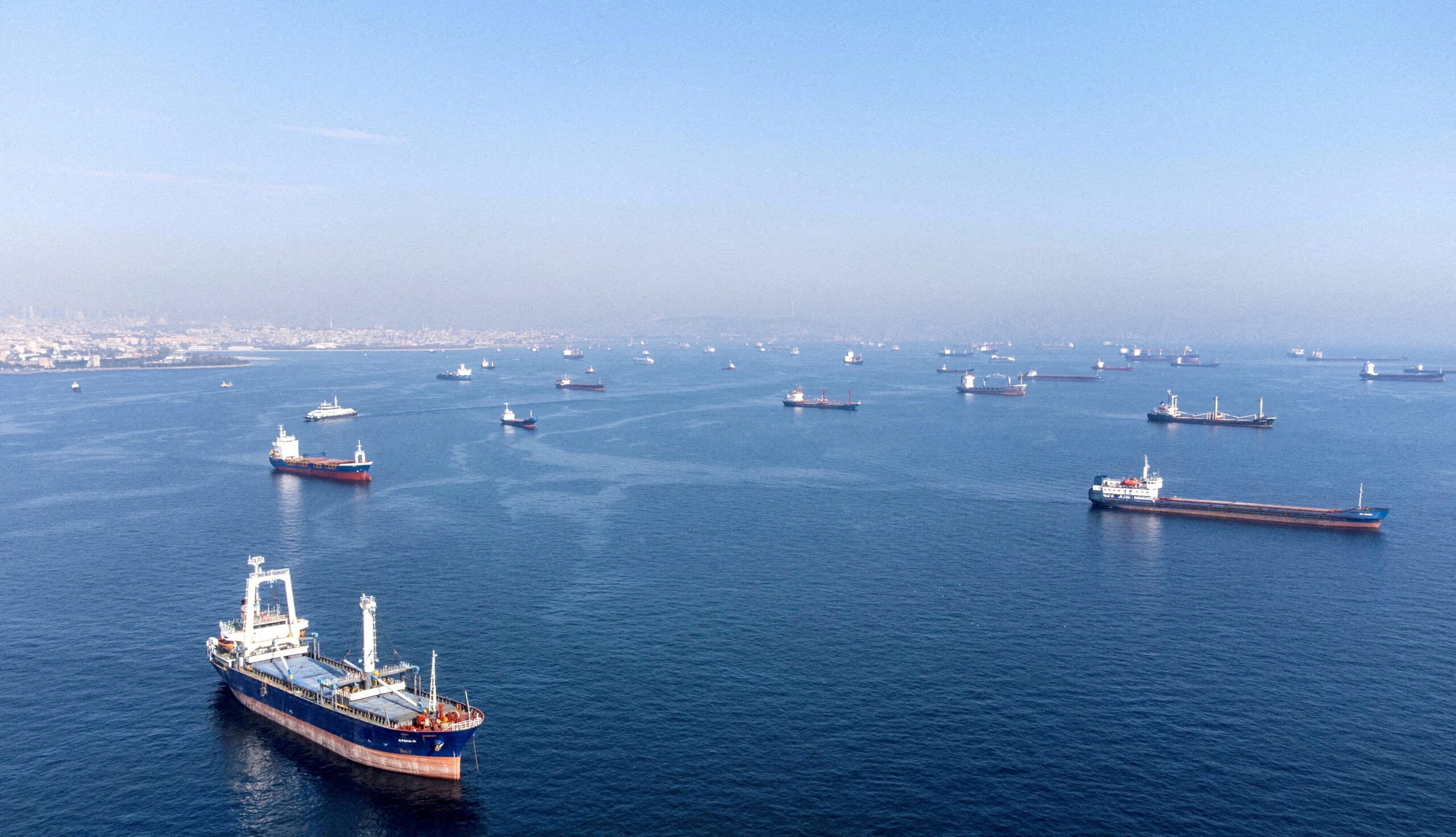U.S. Customs Revenue Tops $100 Billion for First Time Amid Tariff Surge
US revenue from customs duties this fiscal year surpassed $100 billion for the first time, reflecting higher tariffs imposed by the Trump administration.

By Kateryna Choursina
(Bloomberg) —Ship inspection holdups that are crippling Ukraine’s Black Sea crop exports have cost major agribusiness Kernel Holding SA $57 million, its chief executive officer said.
Kyiv has accused Moscow of purposefully slowing checks of vessels carrying crops though a safe-corridor. That’s forcing companies to seek alternative river and land routes that are more expensive — something that’s costing Kernel around $5 million a month — CEO Ievgen Osypov said.
The hefty expense highlights challenges traders face in using the Ukrainian crop corridor, which has been plagued by inspection delays and lengthy queues. It’s up for renewal July 17, but just a trickle of ships are currently traversing it as new vessel registrations remain blocked. That’s adding to the uncertainties Ukrainian farmers face in shipping out their next harvest.
“Who suffers most? Ukrainian farmers who work in extremely difficult conditions,” Osypov said by email. “Their margins and profitability keep declining.”
Read Also: EU Proposes A Russian Grain Bank
Kernel is one of Ukraine’s top crop exporters. It has shipped almost 3.3 million tons of grains from Black Sea ports since the export deal was first agreed about a year ago — roughly 10% of the country’s total flows via the corridor.
The company shipped 80% of its sunflower oil from Black Sea ports in the Odesa region from September through March, but since April the share has slid to 44%, raising costs.
The Black Sea disruptions mean terminals are operating at a fraction of capacity, adding to losses. For example, Kernel’s TransBulkTerminal can handle 10 million tons a year, but is currently being used for just over 3 million tons, Osypov said.
The company also wants the United Nations, which helped to broker the grain-export initiative, to make all procedures related to vessels in the Bosporus more transparent.
–With assistance from Megan Durisin.
© 2023 Bloomberg L.P.

Sign up for gCaptain’s newsletter and never miss an update

Subscribe to gCaptain Daily and stay informed with the latest global maritime and offshore news


Stay informed with the latest maritime and offshore news, delivered daily straight to your inbox
Essential news coupled with the finest maritime content sourced from across the globe.
Sign Up